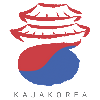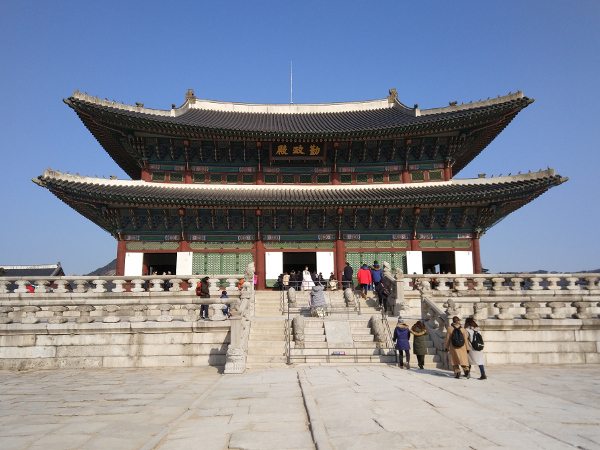Korean Lessons ᚛ Level 3 - Korean for Beginners #2 (Lessons 61 to 90) ᚛ Lesson 90 - Soften a question in Korean [-(으)ㄴ가(요)] [-나(요)] [-니]
Soften a question in Korean [-(으)ㄴ가(요)] [-나(요)] [-니]
We saw in a previous chapter that in order to ask a question in Korean, one simply raises his/her intonation at the end of the sentence. In this course, we are going to see that other possibilities exist, which allow one to ask a question more softly and indirectly.
Basically, the normal conjugation ending -아/어(요) is direct. It is possible to appear a little more polite by asking a question softly. In English, we could compare that to:
- Direct question : You've eaten?
- Soft question : Have you eaten?
The second sounds a little more polite, softer, without being formal.
Ask a question in Korean with -(으)ㄴ가(요)
The ending -(으)ㄴ가(요) is used after a descriptive verb as well as after 이다. We use this ending in the following manner:
[Stem](으)ㄴ가(요)
Note that action verbs cannot use this ending; only descriptive verbs can.
- If the stem ends in a vowel: [Stem]ㄴ가(요)?
- If the stem ends in a consonant: [Stem]은가(요)?
그 남자는 우리 아버지의 친구인가요?
→ This man, is he a friend of our father?
친구가 많은가?
→ Do you have a lot of friends?
지금 어디에 계신가요?
→ Where are you now?
이 단어는 무슨 뜻인가?
→ What does this word mean? (Lit: This word is what meaning?)
Note that it isn't possible to use the -(으)ㄴ가(요) structure in the past tense. For that, we use the 나(요) ending that we are going to see in the following section.
Learn more
Ask a question in Korean with -나(요)
Unlike the ending -(으)ㄴ가(요),we use -나(요) after an action verb (and not after a descriptive verb) as well as after 있다 and 없다. We use the ending -나(요) in the following manner:
[Stem]나(요)?
Note that while this structure is used to ask a question to someone else, even though in the polite style the -나요 ending is very widely used, the casual style with -나 is generally used by old men and is seldom used by the youngest generations.
지금 극장에 가나?
→ Is he going to the cinema now?
식사하셨나요?
→ Have you eaten?
사과 있나요? 없나요?
→ Are there apples? (Or) are there none?
Note that since the -(으)ㄴ가(요) ending cannot be used in the past tense, descriptive verbs conjugated to the past tense also use the -나(요) structure.
그렇게 많이 배고팠나요?
→ Were you hungry that much?
Ask a question in Korean with -니
Learn more
Softening with 혹시
Learn more
Summary table of structure
Learn more
Exercises
Learn more
This printable eBook teaches you Korean writing and includes more than 1,000 Korean vocabulary words divided into 40 categories. Each word comes with audio pronunciation recorded by native Korean speakers (no AI)!
On top of that, you’ll also get access to an online vocabulary learning tool based on the scientifically proven Leitner spaced repetition method.
Learn more

